Welcome to the fourth in our series of interviews with this year's National Flash Fiction Day Anthology editors and Microfiction Competition judges! Submissions for the Anthology and Microfiction Competition are open until 15 February 2023.
This week, Diane Simmons chats with Amanda Huggins, one of this year's Microfiction Competition judges, about poetry, prose, pressure and what she'd like to see in this year's competition submissions....
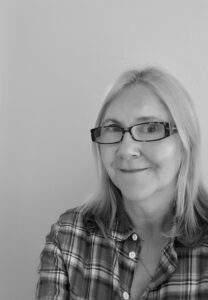 DS: You embrace many writing forms and have published five collections of short stories and poetry. I understand that your first full-length poetry collection is being published in March 2023. Can you tell us a little about it?
DS: You embrace many writing forms and have published five collections of short stories and poetry. I understand that your first full-length poetry collection is being published in March 2023. Can you tell us a little about it?
AH: talk to me about when we were perfect is an album of snapshots; a collage of lives unfolding in flashback. Ralph Dartford very kindly said that I pulled off the “difficult feat” of the “the camera of commentary” in my poetry, so I hope that’s what I’ve managed to achieve in this collection.
There’s a strong yearning running through many of the poems for the places to which we can never return and the people we have left behind. They also cast a questioning eye over past misunderstandings, roads not taken, and undeclared love.
However, the collection is not as autobiographical or as deeply personal as I’ve possibly made it sound. Some of the poems are based on my own life experiences, but many more are simply stories straight from my imagination – readers can make up their own minds which are which!
DS: Writers can sometimes feel under pressure to always be putting words on the page. Are there any activities that you feel are as helpful to you as a writer?
AH: I used to feel that pressure all the time, but I tend to be more laid-back these days – I’ve jumped off the hamster wheel! I find walking is the best activity to clear my head – the Yorkshire moors are great for inspiration. And I enjoy getting involved in various art projects as well – being creative in a different way can often help to kickstart new writing.
DS: Do you have any tips for entrants to this year’s micro competition or anything that you would particularly like not to see?
AH: Micro-fiction has only got time for the sideways glance; a glimpse through the crack. But a glimpse is not the same as a fragment, and I still need something whole – a full story rather than an observation or an anecdote. The skill is in conveying what lies off camera and beneath the surface when you have such a limited word count. Without those hidden depths, the story will feel hollow and the reader won’t care about the character/s. In a hundred carefully chosen words the writer needs to make the specific feel universal.
In conclusion, it’s always worth reminding everyone to use their title wisely, as those are valuable extra words.
DS: Were you a reader as a child? If so, did you have a favourite author?
AH: I was an avid reader well before I went to school. When I was very young I used to make my mother read the same bedtime stories on repeat – especially Enid Blyton’s Book of Brownies, as I loved the adventures of Hop, Skip and Jump. She’d miss bits out and try to whizz through to the end, but I always noticed, and we both decided it would be a lot better if I learned to read them myself.
My favourite author was without doubt Enid Blyton, and I devoured the Famous Five, the Five Find-Outers and the Adventure Series. I also loved anything to do with horses – so the Pullein-Thompson sisters, K M Peyton and Ruby Ferguson were firm favourites. The Brumby by Mary Elwyn Patchett was one book which really stuck in my mind.
Then when I was around eleven or twelve I started reading everything by Agatha Christie and stealing my parents’ Arthur Hailey blockbusters!
DS: I know that you enjoy travel writing. Do you have a favourite country or place that you enjoy writing about?
AH: I enjoy writing about everywhere I’ve been – particularly Japan, India, Cuba and Eastern Europe – and I often set my fiction in those countries too. But Japan is my absolute favourite place both to visit and to write about. Whenever I return to Japan it feels like an emotional homecoming. I’ve often struggled to explain or define this strong connection, or to pin down exactly why I love the country so much, and I think the words remain elusive because the reasons are more spiritual than tangible.
In the countryside and mountains, Japan is light and shadow, moss and stone, the sound of a shoji screen sliding shut, of tea pouring and of temple bells, the scent of tatami matting and cedar, the exhilarating joy of climbing above the clouds. But to me, the cities are equally magical. Neon lights can be just as beguiling as the glow of lanterns along cobbled streets, and Tokyo in particular is fascinating and seductive. To outsiders, it can appear to be a place when quiet contemplation is impossible, and this can go hand in hand with the notion of things never being exactly as they seem, of them being a little off-centre, misunderstood, or lost in translation. And those are all great things to write about!
Amanda Huggins is the author of All Our Squandered Beauty and Crossing the Lines – both of which won a Saboteur Award for Best Novella – as well as five collections of short stories and poetry. Amanda's fiction and travel writing have appeared in publications such as Mslexia, Popshot, Tokyo Weekender, The Telegraph, Traveller, Wanderlust and the Guardian. Three of her flash fiction stories have also been broadcast on BBC radio. She has won numerous awards, including the Colm Toibin International Short Story Award, the H E Bates Short Story Prize and the British Guild of Travel Writers New Travel Writer of the Year. She was a runner-up in the Costa Short Story Award and the Fish Short Story Prize, and has been shortlisted for the Bridport Flash Prize, The Alpine Fellowship Award and many others. Amanda lives in Yorkshire and works as an editor and publishing assistant.
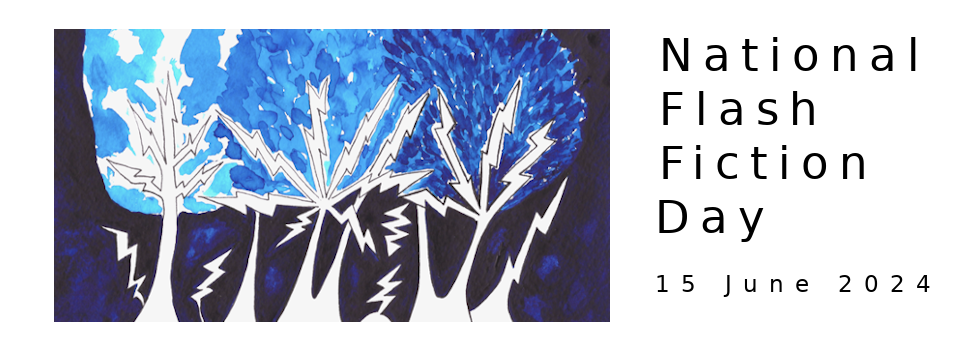
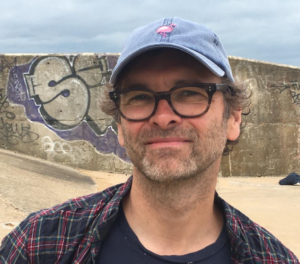
 DS: You embrace many writing forms and have published five collections of short stories and poetry. I understand that your first full-length poetry collection is being published in March 2023. Can you tell us a little about it?
DS: You embrace many writing forms and have published five collections of short stories and poetry. I understand that your first full-length poetry collection is being published in March 2023. Can you tell us a little about it?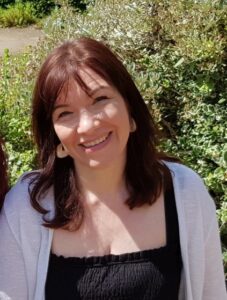 DS: Your novella-in-flash Homing was published by Ad Hoc Fiction in 2019 and shortlisted in the Saboteur Awards in 2020. Can you tell us a little about it?
DS: Your novella-in-flash Homing was published by Ad Hoc Fiction in 2019 and shortlisted in the Saboteur Awards in 2020. Can you tell us a little about it?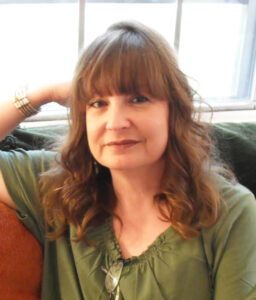 DS: You won the National Flash Fiction Day Micro Fiction Competition in 2018 with The Birth of The Baptist and have had considerable success in other flash competitions. Do you have any advice for writers entering the micro fiction competition?
DS: You won the National Flash Fiction Day Micro Fiction Competition in 2018 with The Birth of The Baptist and have had considerable success in other flash competitions. Do you have any advice for writers entering the micro fiction competition?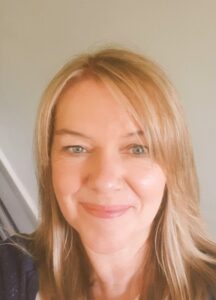
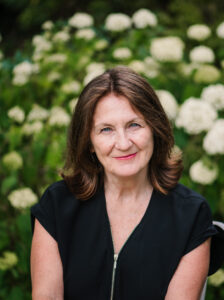 DS: Together with Karen Jones, you are editing this year’s NFFD anthology on the theme of TIME. Do you have any advice for entrants? Is there anything in particular you’d like to see?
DS: Together with Karen Jones, you are editing this year’s NFFD anthology on the theme of TIME. Do you have any advice for entrants? Is there anything in particular you’d like to see?